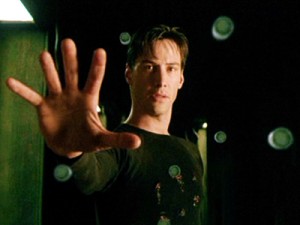Had there been any doubt in my mind about the most important issues facing the world, it would have been dispelled yesterday morning by what I heard on CBC Radio. The Current is more than just a saucy, growling intro from The Voice, and before 9 am I had heard from two of the greatest voices of advocacy and awareness that Canada, that anyplace, has ever had: David Suzuki and Stephen Lewis. When these two get together, what do they talk about?
(Allow me to pause and hereby notify the Nobel people. For all his eloquent education and pleading and all that he has given to those suffering through the Great Pandemic in Africa, the former U.N. Special Envoy for AIDS in Africa has my nomination for the next Nobel Peace Prize. Mr. Lewis should be the second Canadian¹ to join a club that includes Mandela, Teresa, King, Schweitzer and Matthai. The Peace Prize has been awarded since 1901, and will be until, well, until we have world peace, I suppose, but even then there will be milestones and heroes who bring ingenuity, progress and life to the world once war has been politically restrained or banished.)
These particular warriors of peace didn’t have long on the air, but as it so often is these days – and this is a good thing – climate change was the subject. David Suzuki, of course, was far ahead of the public curve on climate change, and has been a passionate defender of the environment for decades. His current campaign has him flying around the country (and, be assured, buying carbon offsets for all that plane travel) asking Canadians what they’d do if they were Prime Minister. Something I hadn’t known was that the first climate conference in 1988 – instigated by the Mulroney government and gathering scientists and leaders from around the world – was chaired by Stephen Lewis. This was several years before the famous Kyoto meeting and the Protocol that resulted from it, and Suzuki and Lewis were blunt and indignant: If we had done what we said we were going to do then, we wouldn’t be in the bloody mess we are today!
It was a superb (if too-brief) conversation with two mighty men, and a trip to The Current‘s website might allow you to play the interview. (It didn’t work for me.) One thing startled me, though: after all the wrenching speeches, tears (his and his audiences’), anguish and exhausting commitment he gave to the cause of African AIDS (and the resultant societal breakdown), I heard Lewis refer to climate change as the single biggest threat the world faces. (Especially to the already-ravaged African continent, not to mention all the low-lying islands and seashores that could be submerged by rising sea levels. Bangladesh.) Imagine the humility and detachment implicit in choosing this environmental threat over the ferocious pandemic he has been fighting from up-close, tongue and tooth and claw…
And there’s more: as big as these two issues are in their human toll – and you may be as worried about war, terrorism, bird flu, poverty, human rights, ethnic struggles – they are still symptoms of one fundamental problem facing the human race. It was elaborated in the 19th century by Bahá’u’lláh: “The well-being of mankind, its peace and security, are unattainable unless and until its unity is firmly established.” I’ve been thinking about this astounding statement for many years, and I am all the more convinced that this is the heart of the matter. The argument is simple but the implications are gigantic: DISUNITY is the underlying disease of humanity, and beneath all the greatest global problems lies our difficulty in recognizing the essential oneness of the human race.
It’s an awfully big idea to get my head around on a Tuesday afternoon, but I offer it for your consideration all the same.
¹ Buy yourself a milkshake if you knew that Lester B. Pearson, before he was our Prime Minister, won the Nobel for his peacemaking efforts in the Suez Crisis.

